Friday, September 2, 2022
Among this week's reviews: from Karen M. McManus, author of One of Us Is Lying, comes a "twisty, shocking thriller," Nothing More to Tell; Greg Steinmetz's "accessible and informative biography" American Rascal: How Jay Gould Built Wall Street's Biggest Fortune; the "bewitching" third novel from Swedish author Lina Wolff, Carnality, named for a sinister game show at the novel's heart; plus so much more.
Sara Farizan and Ryan La Sala interview each other about their new books (Dead Flip and The Honeys, respectively) in The Writer's Life. La Sala observes that both books inspect "the monolith of girlhood and how it's a trap."
Carnality
by Lina Wolff, transl. by Frank Perry
In the background and at the heart of Carnality, the bewitching third novel from Swedish author Lina Wolff (The Polyglot Lovers), is a sinister game show with which the novel shares its name. The show, accessible only on the dark web and hidden behind layers of paywalls and encryption, resembles a grotesque remix of Catholic confession for the reality TV era: a venue for the penitent to come clean before an online audience hungry for narratives of redemption--or ruin. Presiding over it all is a mysterious nun rumored to have both performed miracles and assisted in suicides, embodying Carnality's twin promise of absolution and doom.
The mechanics of Wolff's plot defy straightforward description, with lunatic tourists, stolen speedboats and black-market organ harvesters all coming into play. Wolff trades narrators and storytelling modes with a boldness that sharpens the exuberant contours of the novel: the first half is comprised largely of a monologue delivered by a man who blames Carnality and its evil nun for his undoing; the second half, in a thrilling turn, takes the form of the nun's memoirs. Wolff's narrative pyrotechnics might easily be mistaken for abandon, but as the ending--haunting, affecting and deeply satisfying--makes clear, Carnality's madcap energy is the product of sure-handed control. Meanwhile, evocative language suffuses the novel (a sweltering Madrid summer "lies heavy on the soil like an enemy that never tires"), a testament to the powers of both Wolff and translator Frank Perry to conjure sentences that demand to be reread and savored. --Theo Henderson, bookseller at Ravenna Third Place Books in Seattle, Wash.
Discover: In Carnality, weighty themes of morality and media spectacle are buoyed by author Lina Wolff's kinetic storytelling, boldness in form and undeniable skill.
Witches
by Brenda Lozano, transl. by Heather Cleary
The cruel killing of a former curandera (healer) instigates a potent and intriguing exchange between the curandera's protégé and a journalist who seeks understanding in Witches, the second of Mexican author Brenda Lozano's novels (after Loop) translated from the Spanish. Feliciana, grieving her murdered cousin, Paloma, details how both of them came to understand their gift for "the Language," the spiritual backbone of their healing ceremonies guided by psychedelic mushrooms. Paloma, whose queer identity is written with tenderness, was no longer practicing this craft when she died, because she chose men over mushrooms, but her light shines throughout the novel: "the sugar I carry in my blood to sweeten this sour world, I made that from my own cane, darling."
Meanwhile, Feliciana's narrative prompts Zoe, in alternating first-person chapters, to expound on her path toward journalism. The women's stories dovetail, with echoing experiences of sisterhood, motherhood, purpose and gendered violence. These elegant streams of consciousness ripple with tantalizing figurative language, eddying together as they flow into one refreshing river of a novel.
Translator Heather Cleary begins the book with a compelling note on terms she chose to keep in their original language, highlighting distinct ways that curandera and bruja and witch don't easily overlap. "I am not a witch..." Feliciana goes on to explain, "the herbs and the mushrooms give me great powers for reflection... reflection is how we heal ourselves and how we can fix any problem or heartbreak." And it is heartbreak that this novel seeks to guide readers beyond, becoming itself a healing, meditative space to confront the cruelties of the world. --Dave Wheeler, associate editor, Shelf Awareness
Discover: In potent, alternating first-person narratives, a healer and a journalist confront heartbreak and hostility through the dazzling language of psychedelic mushrooms.
The House of Fortune
by Jessie Burton
Set during the winter season of 1705 in the bustling port city of Amsterdam, The House of Fortune by British author and actress Jessie Burton is the captivating coming-of-age drama of Thea Brandt, a spirited Dutch-African girl longing for romance and impatient to launch her adult life while remaining shackled to her family's scandalous past. Burton's dark and opulent third novel explores the conflicting loyalties that influence Thea and threaten to undermine her ravenous desire for independence.
Thea was born out of wedlock to Dutch native Marin Brandt and her brother Johannes's African manservant, Otto. Thea never met her mother; Marin died in childbirth. Johannes, a wealthy merchant, was sentenced to death for the crime of sodomy before Thea was born, leaving his widow, Nella, to suffer the cruel rejection of Amsterdam's judgmental society and a tragic reversal in the family's fortunes.
Readers of Burton's debut, The Miniaturist, will have met Thea's family before. Familiarity with The Miniaturist, however, is not a prerequisite to enjoying The House of Fortune, a novel set 18 years later amid the faded splendor of Johannes's magnificent canal house. The estate teeters toward poverty, selling family heirlooms to make ends meet. While the adults quarrel about money and Thea's future, packages begin to arrive for the young woman from an unknown source, containing exquisitely carved miniature objects that hint at the secrets she is keeping from Otto and Nella. Burton's narrative talents shine at full brilliance in The House of Fortune, offering a heady, hypnotic immersion into Thea's world that readers will be reluctant to leave. --Shahina Piyarali, reviewer
Take My Husband
by Ellen Meister
An entertaining saga of love lost and found, Take My Husband by Ellen Meister (Dorothy Parker Drank Here) merges the edginess of a thriller with the soul of a romantic comedy, a winning combination sure to appeal to readers across the literary spectrum. Fifty-something Laurel Applebaum from Long Island, N.Y., is not your typical heroine. Laurel is stuck in a languishing 30-year relationship with needy and unemployed Doug, a man who takes her for granted, and she fantasizes about being free of her marriage and its attendant responsibilities. Widowhood would leave her financially secure--Doug has a hefty life insurance policy--and free to visit her son's family without her husband's recriminations about flight costs.
Laurel spends her days working at Trader Joe's and dreaming about her life post-Doug. The only problem is that her husband, despite his older age and many health issues, shows no signs of popping off. Her increasingly desperate musings about the joys of widowhood lead her to consider the unthinkable, forming the dark premise underlying Meister's excellent eighth novel.
Featuring scenes of high drama and memorable characters, including the overattentive coworker who urges Laurel toward freedom and the handsome customer with whom she shares a sizzling attraction, Take My Husband leads Laurel through a series of suspenseful plot twists and comedic misunderstandings--and to a deeper understanding of her true self and the future she wants. Whether or not Doug is part of that desired future is a question that will keep readers guessing right until the very end. --Shahina Piyarali, reviewer
Discover: A wife realizes that her languishing 30-year marriage is holding her back from living the life of her dreams in this contemporary comedy thriller set on Long Island, N.Y.
Didn't Nobody Give a Shit What Happened to Carlotta
by James Hannaham
Sharp social commentary intermingles with what is very nearly slapstick humor in Didn't Nobody Give a Shit What Happened to Carlotta by James Hannaham. Carlotta Mercedes is granted parole just before the Fourth of July weekend. A trans woman who transitioned shortly after her imprisonment for her part in a liquor store robbery that went sour, Carlotta has spent more than 20 years in a men's prison, frequently suffering assault and solitary confinement. She's feeling ambivalent about leaving behind her man, Frenzy, but is eager to reunite with the son who has never known her as a woman. Returning to her family in Brooklyn is an adventure in navigating gentrification, 20 years of technological changes and a lukewarm reception from her relatives.
Hannaham's previous novel, Delicious Foods, featured crack cocaine as a narrator, setting a high standard for inventiveness. Carlotta is merely human; nevertheless, her narrative voice crackles with energy, shifting between first and third person and suggesting an imagined voice-over for the miniseries she pictures for her story--with her occasional direct interjections. Her struggles to comply with the terms of her parole, avoid being around alcohol during Independence Day celebrations and find employment are at times wonderfully farcical, particularly the plan she comes up with after having been hired as a driver in spite of never having gotten a license.
In the vibrant persona of Carlotta, Hannaham once again presents a thrilling voice. Readers, at least, will prove the title wrong. --Kristen Allen-Vogel, information services librarian at Dayton Metro Library
Discover: A resilient narrator with a bold voice will keep readers laughing, even as they fume at the injustice she faces.
Mystery & Thriller
Do No Harm
by Robert Pobi
Genius astrophysicist and former FBI agent Lucas Page's ability to see patterns that elude others makes him one of the most unusual sleuths. Robert Pobi (City of Windows) skillfully incorporates Page's background into the tense Do No Harm, the third novel in the Lucas Page series, and realistically uses science and analytics to connect seeming coincidences to crimes.
Since horrible injuries ended his FBI career, Lucas--who writes books and teaches at Columbia University--has devoted himself to his wife, Erin, a pediatric orthopedic surgeon, and their five adopted children. Yet the FBI still needs his singular skills to solve unusual cases. This time, Lucas approaches the FBI after realizing at a hospital charity dinner that 30 doctors have died in the past year, through accidents or by suicides. Lucas believes that the chance of that many deaths occurring in such a short time is "zero." He is sure the doctors have been murdered. The FBI has learned to trust Lucas's sometimes far-fetched theories. His investigation takes on a new urgency when a friend of his is killed and his wife is targeted.
Pobi weaves a clever, intelligent plot as Do No Harm takes a tour through New York City neighborhoods and museums to find the link among the deaths that would elude the most dedicated investigator. The careful use of astrophysics elevates the novel, and Pobi's ability to explain complicated science makes it understandable. Pobi keeps the thriller aspect of his plot front and center, never allowing Do No Harm to be a dissertation. --Oline H. Cogdill, freelance reviewer
Discover: A brilliant astrophysicist and former FBI agent who sees patterns that elude others connects the deaths of 30 doctors to murder in Robert Pobi's clever, intelligent Do No Harm.
Hokuloa Road
by Elizabeth Hand
Elizabeth Hand (The Book of Lamps and Banners; Curious Toys) probes dark crevices in beautiful places, and the engrossing Hokuloa Road, which explores the circumstances of a young man trying to find purpose and meaning, is no exception. It's a long way from Maine, where Grady Kendall has lived all his life, to Hawaii, where he has never been and knows no one. But Maine has grown stagnant for Grady, especially during the pandemic, during which this novel is set. His carpenter jobs have dried up and his last relationship has ended; aside from his mother, he sees few people. A job as caretaker for eccentric billionaire Wes Minton, working at his mansion on the beautiful, remote Hawaiian volcanic peninsula of Hokuloa, may be his salvation.
As Grady settles in, he finds Hawaii buckling under the pandemic: rooms at luxury resorts stand empty while the "houseless" sleep on the streets, littered with abandoned cars. He worries that a young woman he met on the flight to Hawaii is missing along with myriad others, a situation the police ignore. Grady fears that his odd boss--who keeps a tank of poisonous sea urchins and cages of birds that are supposedly extinct, and who disappears for days--may be connected.
Hand contrasts Hawaii's rich environment with Grady's emotional well-being as he looks into what motives Wes may have. Grady believes that exposing Wes's true nature may be his last chance to make a difference. Hokuloa Road smoothly incorporates Hawaiian ghost stories and myths into an exciting plot grounded in the natural world. --Oline H. Cogdill, freelance reviewer
Discover: In this engrossing thriller, a young man tries to find purpose in life on a remote Hawaiian peninsula, working for an eccentric billionaire who may be connected to a number of disappearances.
Science Fiction & Fantasy
Taste of Gold and Iron
by Alexandra Rowland
Alexandra Rowland (A Conspiracy of Truths) strikes the perfect balance of political intrigue and romance in A Taste of Gold and Iron, a lush, Ottoman-inspired fantasy with sweeping emotions and prose worth savoring.
Excited about the birth of his niece, Prince Kadou tries to ignore the casual cruelties of his niece's body-father, Siranos. But when an altercation between his guards and Siranos's turns deadly, the sultan of Arasht--Kadou's older sister--strips both men of privileges and publicly reprimands them. As part of his punishment, Zeliha assigns Evemer to be Kadou's primary kahya. More than a bodyguard, a kahya is a highly trained professional in domestic service to the royal family. In most cases, promotion to the core guard would be a great honor, but Evemer can't help but resent the "careless-flighty-negligent" prince responsible for the unnecessary deaths of two other kahyalar.
Evemer's judgments fade to compassion as he observes Kadou's self-sacrificing kindness and realizes some of the behaviors he considered self-indulgent are actually the aftermath of panic attacks. Rowland writes Kadou's mental illness and the reactions of those around him with nuance, neither ignoring the impacts of mental illness on Kadou's interactions nor using it as shorthand for characterization.
Rowland's Arasht is queernormative, with central characters of multiple genders and a social structure that seems mostly free of gendered expectations of dress, behavior and occupation; class is instead the primary social divisor. A Taste of Gold and Iron is a beautiful, compelling navigation of power and consent, loyalty and love, trust and hope. --Suzanne Krohn, librarian and freelance reviewer
Discover: This Ottoman-inspired fantasy novel is an entrancing mix of queer romance and political intrigue, with emotionally resonant prose and an empathetic depiction of panic disorder.
Biography & Memoir
American Rascal: How Jay Gould Built Wall Street's Biggest Fortune
by Greg Steinmetz
"The chief business of the American people is business," President Calvin Coolidge once said. The nation's founding landowners, merchants and tycoons have been, for better and worse, as totemic figures as any in making the United States the country it is today. However, although most Americans could likely recite the names Rockefeller, Ford, Carnegie, J.P. Morgan and Vanderbilt, these men comprise only a small fraction of the major businesspeople in U.S. history. In American Rascal, Greg Steinmetz--author, former Wall Street Journal reporter and securities analyst--tells the story of the life of Jay Gould. A lesser-known robber baron of the Gilded Age, Gould was just as wealthy as his contemporaries. His actions enormously influenced the U.S. in the second half of the 19th century and beyond.
Gould, determined from a young age to seize his share of the nation's exploding wealth, worked with a maniacal energy. Parlaying early success in tanneries into railroad investing and broader stock speculation, he gained enormous stakes in the massive logistics network, uniting a huge country, and engaged in many large-scale stock trading tactics that are now illegal--largely, Steinmetz argues, because of Gould.
Steinmetz (The Richest Man who Ever Lived) writes in short chapters and with focused and clear prose, weaving in vital historical context. The result is like a chronological collection of news articles about particular episodes of Gould's life. It's an accessible and informative biography that communicates a clear message and major ramifications for today's different, but in some ways similar, rough-and-tumble business world. --Walker Minot, freelance writer and editor
Discover: Greg Steinmetz's American Rascal is the smart and accessible story of Jay Gould, whose Gilded Age financial machinations anticipated the first major Wall Street reforms.
Social Science
Status and Culture: How Our Desire for Social Rank Creates Taste, Identity, Art, Fashion, and Constant Change
by W. David Marx
Forget trying to tell W. David Marx that there's no accounting for taste. There actually is, which is what he insists in his cannily reasoned Status and Culture: How Our Desire for Social Rank Creates Taste, Identity, Art, Fashion, and Constant Change.
Marx states his aim in the book's introduction, which is to solve what he calls "the Grand Mystery of Culture": "Why do humans collectively prefer certain practices, and then years later, move on to alternatives for no practical reason?" While puzzling out the answer, Marx consults the work of dozens of formidable thinkers--anthropologists, historians, philosophers, sociologists--and quotes them liberally. But to further bolster his points, Marx is at least as likely to furnish examples from pop culture (the cupcake craze unleashed by Sex and the City) as from so-called highbrow culture (the French painter Henri Rousseau's late-in-life recognition).
Marx lays out some findings that may seem commonsensical, principally the notion that people may be unconsciously guided by status-seeking when they select what to buy. But Status and Culture offers plenty of revelations, such as that one reason consumers may purchase traditional totems is because these objects signal old money. Marx (Ametora: How Japan Saved American Style) sounds a cautionary note about the rise of the ostensibly democratizing "omnivore taste": "By rejecting taste, omnivorism weakens cultural and subcultural capital to the point of nonexistence. As a result, raw wealth becomes a more obvious criterion for status distinction." Ultimately, though, Marx wouldn't judge anyone for their tastes--make that "tastes." --Nell Beram, author and freelance writer
Discover: This cannily reasoned book examines why people make the consumer and aesthetic choices they do, consciously or otherwise.
Poetry
Golden Ax
by Rio Cortez
Pushcart Prize-nominated poet Rio Cortez (The ABCs of Black History) opens Golden Ax with an author's note, defining it as a work of "Afropioneerism" or "Afrofrontierism." She explains that it is "autobiographical, but it is also a work of imagined history." This debut collection, more than 45 poems divided into three sections, considers the intersections of place and self, asking readers to wonder with Cortez about the ways in which history and fiction intertwine and how "we imagine ourselves into existence." Though drawn from personal family history, the poems in Golden Ax engage the universal, enlarging the sense of self they describe.
Even as each piece varies in style, structure and tone, the collection has a unifying sensibility. From prose poems drawing on historical events to a series of works replacing a white character (Annie Hall, Frasier Crane) with a Black woman, Cortez plays with form and brings a distinct and inventive perspective in every poem. The collection, despite incongruities, hangs together through its rich, evocative language and lived-in landscapes, as seen in "The Idea of Ancestry": "and before then/ the roof had been aspen/ its green coins/ singing in the wind/ and I know it sang/ because I have stood right/ at the center of its singing/ the same singing/ heard by black bears/ or the calf of a moose/ lying/ even sweeter/ in the yarrow/ showing/ we can be dark/ and shining/ in the wildflowers." The short lines and enjambment invite an urgency, a shortening of the distance between the past and any given present. --Sara Beth West, freelance reviewer and librarian
Discover: Though drawn from personal family history, the poems in Golden Ax engage the universal, enlarging the sense of self while shortening the distance between the past and any given present.
Now in Paperback
Two Truths and a Lie: A Murder, a Private Investigator, and Her Search for Justice
by Ellen McGarrahan
Ellen McGarrahan used to believe in an objective reality. That changed when she devoted a year of her life to learning the truth about the 1976 crime that led to the execution of Jesse Tafero, for which she volunteered to be present. While researching the riveting Two Truths and a Lie: A Murder, a Private Investigator, and Her Search for Justice--a finalist for the Edgar Award and Clue Award, and a New York Times Book Review Editors' Choice--McGarrahan found herself bombarded with self-serving, conflicting testimonies. As a prosecutor put it to McGarrahan, "Murders don't usually happen in front of a busload of bishops."
The murders at the center of Two Truths and a Lie occurred on February 20, 1976, when a Florida state trooper and his Canadian-constable friend approached a Camaro parked at a rest stop 15 miles north of Fort Lauderdale. Inside the car were Tafero, a drug dealer and fugitive convicted rapist; his girlfriend, Sonia "Sunny" Jacobs, and her two children; and Walter Rhodes, who was on parole for armed robbery. After Trooper Black and Constable Irwin engaged with the Camaro's occupants, an altercation broke out that left both officers dead.
Readers of Two Truths and a Lie shouldn't expect a polemic against capital punishment, although it's possible to read the book as a slow-build evisceration of the American justice system's classism. Nor should readers expect McGarrahan's lucidly written deep dive to produce crystalline clarity about the case. McGarrahan would come to realize that this wasn't the point. "I'm writing a book about Jesse Tafero" was her opening gambit when reaching out to an interview subject, but Two Truths and a Lie is equally about Ellen McGarrahan. --Nell Beram, author and freelance writer
Discover: In this gut-wrenchingly good deep dive, a private investigator examines the 1976 crime that may have led to the wrongful execution of a man she watched die in the electric chair.
Songbirds
by Christy Lefteri
With Songbirds, Christy Lefteri (The Beekeeper of Aleppo) shines a light on social issues through the story of one woman's disappearance: "One day, Nisha vanished and turned to gold." Nisha is a Sri Lankan immigrant to Cyprus, where she works in the capital city of Nicosia as maid to Petra, a widow, and her nine-year-old daughter, Aliki. Petra's upstairs tenant Yiannis is Nisha's secret lover (maids are not permitted lovers). This absorbing novel opens after Nisha has gone missing, and is told in chapters that alternate between Petra's and Yiannis's points of view as they mourn and search for Nisha.
Nisha is representative of numerous migrant worker women in Cyprus, largely from Vietnam, Nepal, the Philippines and Sri Lanka. Petra observes, "I had started to see the rhythm of these women with new eyes--how the whole neighborhood pulsed with their activity. They had been invisible to me before Nisha had gone missing."
Although her neighbors are quick to write off the disappearance as abandonment, with the assumptions of casual racism, Petra knows this is out of character. Nisha is devoted to Aliki, and besides she's left behind her passport and most precious possessions, relics of her late husband and her own daughter in Sri Lanka. The police won't help, so Petra mounts her own investigation.
Lefteri deftly weaves Yiannis's pain at the loss of his love with Petra's growing realizations about her own culture and Aliki's attachment to her missing caretaker. Songbirds is quietly urgent in its treatment of Nicosia's maids, thoughtful, compassionate and lyrical in its descriptions. --Julia Kastner, librarian and blogger at pagesofjulia
Discover: Set in the old capital city of Cyprus, this is a beautiful, sad novel about human relationships and hard choices, who is seen and unseen.
London's Number One Dog-Walking Agency: A Memoir
by Kate MacDougall
Kate MacDougall, "tall, gangly, butterfingered," may have had the right background, education and qualifications to work for four years at the prestigious Sotheby's auction house in London. However, a comedy of errors propels her out of her less-than-fulfilling back-office job and inspiring her, on a lark, to start a dog-walking business. Enjoyable, easy to read and thoroughly entertaining, London's Number One Dog-Walking Agency shares humorous, conversational stories of MacDougall serving as a pseudo-matchmaker between the dogs, dog owners and dog-walking employees who shaped her life and her growing business over nine years, starting in 2006.
Met by opposition and belittlement from her mother and some of her peers, who feel her new career is beneath her, MacDougall sets off on an exciting adventure that snowballs through her 20s--through dating, engagement, marriage and motherhood. Her supportive husband is, ironically, scared of and "doesn't like dogs. At all." MacDougall details pivotal experiences, dilemmas and interactions with clients. Some of the dogs are as quirky and neurotic as their owners--and dog-walkers--who, at times, are far more exasperating and difficult to deal with than their canine charges. There's also the tender transformation of a mysterious rescue who is not at all interested in dogs or people, but who is interested in food. And the author's own Jack Russell terrier, who undergoes a battle of the bulge.
MacDougall's fun, brisk storytelling and cleverly rendered details largely focus on growing, improving upon and sustaining her business. However, philosophical undercurrents profoundly define how work--and canine companionship--can enrich the soul and spirit, ultimately giving shape and form to living a more meaningful existence. --Kathleen Gerard, blogger at Reading Between the Lines
Discover: A thoroughly entertaining memoir details the unforeseen challenges and rewards of operating an active dog-walking business.
Friends Like These
by Kimberly McCreight
No one should want to be a part of the messy, self-centered group of college pals in Kimberly McCreight's shrewd, insightful fourth novel, Friends Like These--a look at the dark side of friendship.
Wealthy Jonathan Cheung and friends Stephanie Allen, Maeve Travis, Keith Lazard and Derrick Chism--all Vassar alumni--claim they are bonded by unconditional love, devoted to each other, willing to forgive any transgression. Instead, guilt, fear and secrets unite them. A decade ago in college, a young man fell off a roof while they were all drinking. Rather than call an ambulance or the police, they left him there, worried that this accident would taint their futures. Later, wracked with guilt, Keith's girlfriend died by suicide.
Now, they've all gathered for the weekend at Jonathan's Catskills mansion, but the real agenda is to force New York City gallery owner Keith into rehab. A car crash, after which one friend is dead and one is missing, brings in Detective Julia Scutt, whose sister's murder 20 years ago still has repercussions. Another unrelated death ramps up the action.
McCreight (A Good Marriage) swirls the plot with each friend's personality while building on the local residents' ongoing tensions with the wealthy weekenders, with intimidating contractors who are demanding payment that Jonathan's fiancé, Peter, has neglected, and mobsters whom Keith owes. Each plot point adds to the fractures in the group, as do the anonymous e-mails threatening to expose each person's secret, leading to the surprising denouement.
The group's carelessness with each other and with outsiders emphasize their chaotic lives in the engrossing Friends Like These, coming soon from Amblin Television. --Oline H. Cogdill, freelance reviewer
Discover: In this gripping standalone thriller, five self-centered friends who met in college are bound by guilt and fear dating back to an accidental death.
A History of Wild Places
by Shea Ernshaw
Hauntingly atmospheric, Shea Ernshaw's A History of Wild Places explores the isolated cult-like community of Pastoral and one family that is about to be rocked to its core. Theo, his wife, Calla, and her sister, Bee, are lifelong members of Pastoral, an idyllic commune founded in the 1970s. Since its founding, however, Pastoral has grown increasingly alienated from the rest of the world, as its residents have come to believe that to leave the community limits would be to catch a mysterious and deadly disease called the rot. But when Theo finds evidence that two outsiders--a missing children's book author and the man hired to find her--have entered Pastoral and since disappeared, Theo, Calla and Bee's bonds with each other and with their community will be tested.
Split between the three protagonists' perspectives, A History of Wild Places is written as a kaleidoscope of colliding realities. The result is a novel about paranoia that is hypnotic in the way it pieces together the lies its characters tell each other and themselves. While the mystery at its center--the fate of one enigmatic author--keeps readers guessing, it's the mesmerizing details about Pastoral that prove truly captivating in this chilling tale. Full of discomforting rituals, mysterious myths and rugged beauty, Pastoral is as seductive as it is terrifying, a fantasy world transformed into nightmare by an uncannily familiar desire for control. Ernshaw's (The Wicked Deep) slow-burn thriller may have a conclusion, but the spell Pastoral places over its readers cannot be so easily resolved. --Alice Martin, freelance writer and editor
Discover: As spellbinding as an old, dark fairytale, this psychological thriller explores the deep corners of forests and of human desire.
IRL: Finding Our Real Selves in a Digital World
by Chris Stedman
Chris Stedman (Faitheist) has put a significant amount of thought into what it means to be "extremely online" for his inquisitive and ruminative second book, IRL: Finding Our Real Selves in a Digital World. More than a development in technology, the Internet has brought a seismic shift in culture, producing a distinctive culture all its own, predominantly through social media. It takes curiosity, tenacity and a certain off-the-wall sense of humor to engage meaningfully in these online spaces, so there is no better guide for readers than Stedman, who is a viral Twitter personality, professor of religion and philosophy, and creator of the critically acclaimed podcast Unread.
The beating heart of IRL is the search for holistic connection and identity in an online world that tends to reward fractured and siloed selves (through personal branding) and discourage vulnerability (through social media dogpiles)--among other slippery variables like instant nostalgia: "We can begin to view our lives nostalgically as they unfold... remembering things as better than they were even moments after they happen."
Stedmen brings hope, compassion and understanding to the human side of the Internet, along with a wealth of research, including studies performed by social scientists, and analysis from prominent cultural critics focused on the field, like Jia Tolentino, author of Trick Mirror. This paperback edition of IRL includes a new introduction, drawing into consideration how the coronavirus pandemic has driven many more personal interactions into the online world. For readers wondering how to balance life online and off, IRL provides amiable and invaluable insight. --Dave Wheeler, associate editor, Shelf Awareness
Discover: With engaging anecdotes and thoughtful research, Chris Stedman brings new clarity to the common struggle in balancing life online and off.
Children's & Young Adult
Nothing More to Tell
by Karen M. McManus
No one is who they appear to be in this twisty, shocking thriller by Karen M. McManus (One of Us Is Lying; Two Can Keep a Secret) about a high school senior who investigates the unsolved murder of her eighth-grade teacher.
Brynn, who has lived in Chicago for the past four years, returns to the Massachusetts town where beloved eighth-grade teacher Mr. Larkin's body was found by former schoolmates Tripp, Charlotte and Shane. While adjusting to senior year in her hometown, Brynn, determined to solve Mr. Larkin's murder, begins interning for a popular true crime podcast, Motive. She uses her time volunteering at a garden established in memory of Mr. Larkin to gently interrogate fellow volunteer and ex-friend Tripp. The more time Brynn spends with Tripp, the more Charlotte and Shane intervene. As Brynn and Tripp's relationship slowly turns romantic, Brynn starts to uncover secrets hidden by friends, family members and even Mr. Larkin.
McManus's use of dual points of view builds character, suspense and tone. Brynn's perspective is journalistic: she puts clues together, meddles and gets into trouble. Eighth-grader Tripp's viewpoint is more internal, displaying the crumbling of his superficial friendship with Charlotte and Shane and describing his guilt from the experience of finding Mr. Larkin's body. The addition of Tripp's perspective heightens the suspense as it slowly unveils what happened that day--with a cliffhanger ending. This riveting mystery will leave readers eager to know who is responsible for the death of Mr. Larkin. --Kharissa Kenner, children's librarian, Bank Street School for Children
Discover: Senior Brynn investigates the murder of her eighth-grade teacher in this gripping YA thriller from the author of One of Us Is Lying.
Three Little Vikings
by Bethan Woollvin
Three Little Vikings is a cheerfully told Nordic adventure that features three small but plucky friends, a mysterious BIG something in the woods, piles of gold and a delightful dose of comeuppance.
The "Viking folk" are busy celebrating newly acquired treasure, but Ebba, Helga and Wren are worried. There's "something scary outside," they tell the Chieftain, who responds, "Nonsense!" The next morning the village is in shambles. Helga says it looks like "something very BIG" is the reason, but the Chieftain again insists this is "nonsense!" When Helga, Ebba and Wren inform him that a "BIG, angry, noisy creature is roaming the forest," the Chieftain booms "nonsense!" a third and fourth time. He blames a thunderstorm, a fox, rotten trees and pesky ravens, then dismisses the girls so he can take care of more important matters, like who is stealing the village treasure. The three friends decide it's up to them to save the village. They do their research and hatch a savvy plan to take care of the bashing, smashing trouble all by themselves.
Bethan Woollvin (Little Red) delivers a merry olde story that's chock full of modern-day appeal. Her Viking girls are steadfast and wise, and they earn their right to one-up their stubbornly oblivious Chieftain. Woollvin's distinctive design is defined by characters with overlarge eyes, and she uses strong, flat blocks of color decorated with whimsical patterns and details, which give her gouache and digital illustrations a singular look. Share this triumphant tale with little Vikings everywhere. --Lynn Becker, reviewer, blogger and children's book author
Discover: Three Little Vikings is a triumphant picture book adventure wherein three small but plucky girl Vikings ignore their silly Chieftain to investigate a mysterious BIG something in the woods.
Dadaji's Paintbrush
by Rashmi Sirdeshpande, illus. by Ruchi Mhasane
A boy mourns and celebrates his beloved grandfather in the sensitively told and expressively illustrated Dadaji's Paintbrush by Rashmi Sirdeshpande and Ruchi Mhasane.
In a village in India (based on the home of Mhasane's family and Sirdeshpande's grandfather), a boy and his generous dadaji (grandfather in Hindi) live together "in an old house full of paintings." Kind and artistic Dadaji enthusiastically teaches the boy how to paint and invites the other children from the village to join in. When Dadaji dies, the boy's world collapses, shown by Mhasane's staggering double-page spread featuring a deep, glowing sunset and a dark night, the boy seated alone with his grandfather's cane. "The house felt empty. Like the hole in the boy's heart where his grandfather used to be. Where all the colours used to be." The palette remains blue and gray as the boy grows into a young man. Then a girl appears. Behind her in the open door are the brilliant colors of the village and she asks if he'll teach her how to paint "like your dadaji taught my mummy." Her appearance encourages the young man to embrace art again and to employ all that his grandfather taught him to teach others. "As time passed by, the house was filled with colour again."
Sirdeshpande and Mhasane pay homage to the intense love felt by grandparents and grandchildren and demonstrate the importance of art and passing skills from one generation to another. This heartfelt picture book is perfect for an art class, a read-aloud session at a library or for sharing with a child who has recently lost a loved one. --Melinda Greenblatt, freelance book reviewer
Discover: A boy mourns and celebrates his beloved grandfather in this sensitively told and expressively illustrated picture book.
Boobies
by Nancy Vo
This just in: there's a terrific new title to shelve alongside all the other picture books about the human body and its sometimes squirm-making functions. (Thanks for getting the party started, Everyone Poops.) Nancy Vo's Boobies is as factual as a parent would hope and as funny as a young child would wish.
Vo (The Outlaw) begins with a provocation: "You have just opened a book about boobies" runs below two beige orbs with dark nipple-like centers against white areola-like circles. A turn of the page reveals that the joke's on the reader: the orbs are actually a fish's eyes. The gags persist even after Vo launches into a largely science-minded narrative that covers the breast's function, the number of breasts that various mammals have and breast-related fun facts ("A cow's mammary glands are in a bowl shape, with four booby tubes"). By the time Vo closes with "Say it like you mean it.../ Boobies are great!," readers should have no reason to quibble.
Boobies may be a groundbreaking picture book, but Vo's tidy stencil art has a quaint retro vibe. Vo, employing a simple palette, likes to park adorable animals against white backdrops, leaving space for the book's ideas to settle. The omission of any mention that milk-generating breasts are a feature unique to the biologically female-born mammal may seem like a missed opportunity to be scientifically precise, but Boobies is a big step forward in educating young children about the mammary gland's use beyond the comedic one. --Nell Beram, freelance writer and YA author
Discover: This picture book primer on the human and animal breast is as factual as a parent would hope and as funny as a young child would wish.
Moon Dark Smile
by Tessa Gratton
Tessa Gratton's (Strange Grace; Night Shine) affecting fantasy introduces readers to a world of sorcery and intrigue, where great strength lies in stepping beyond limitations of binary choice.
When she was seven, Raliel Dark-Smile's father, the emperor, insisted she choose her own identity. She chose the moniker of a legendary dragon and "declared her name." Since then, Raliel's only true friend has been Moon, the great demon who represents "the power of the empire" and is bound to the palace. The emperor and his consorts are also bound, as Raliel will be once she's completed her upcoming Heir's Journey. But both Moon and Raliel long to be free. They create a magical amulet and, when Raliel is 18, she begins her Journey with Moon secretly nestled "just beneath her heart." Osian Redpop, a young guard with dangerous secrets of his own, is ordered to accompany them. As Raliel and Moon seek a way to expand their world beyond the palace walls, the odyssey leads them to sorcerers of great knowledge and power. It's only when the three companions start to understand the meaning of "liminality" and begin to move beyond the binary, though, that they learn how to break the bonds that imprison them.
Gender fluidity is at the heart of this lush yet ethereal fantasy populated with demons, spirits, witches and sorcerers. Gratton's characters repeatedly slip outside traditional dualities, and her concept of liminality offers a path to the power that Raliel and Moon need to succeed. Mellifluous writing delivers a compelling story that, like Raliel Dark-Smile herself, is nimble and strong, its magic unspooling as effortlessly as a dragon splashing in a pool. --Lynn Becker, reviewer, blogger, and children's book author
Discover: Tessa Gratton's enchanting fantasy, populated with demons, spirits, witches and sorcerers, creates a world where great strength lies in stepping beyond limitations of binary choice.
In the Media
The Writer's Life
Sara Farizan and Ryan La Sala: The Trap of Girlhood
|
|||
|
|||
Sara Farizan (she/her) is an Iranian American author of the YA novels Here to Stay, Tell Me Again How a Crush Should Feel and If You Could Be Mine. Dead Flip (Algonquin Young Readers) follows Cori and Maz, friends who grew apart after their friend Sam's disappearance. Then, five years later, Sam reappears--the same age as the day he vanished.
Ryan La Sala (he/they) writes about surreal things happening to queer people. He is the author of Reverie and Be Dazzled. In The Honeys (PUSH/Scholastic), genderfluid teen Mars's twin sister, Caroline, dies under horrific circumstances. Mars decides to attend Aspen Conservancy Summer Academy in her place and befriend her old friends, a group of girls dubbed the Honeys. They are beautiful and terrifying--and Mars is certain they're connected to Caroline's death.
Here, the authors discuss Dead Flip and The Honeys, investigating gender expression and identity.
Ryan La Sala: One thing that I picked up on in both our books--and maybe this is because you and I are in the rainbow together (though not in the same band of the rainbow)--is the monolith of girlhood and how it's a trap. I loved, loved, loved that in Dead Flip we get to see Cori grow up and against this model. As a young girl, Cori is called a tomboy and told she needs to grow out of the behavior. Then in the present day she deals with the fallout of who she's formed herself into just to get by. And then we see her come to terms with the fact that this is not what she wants: she wants to embrace that "tomboy" part of herself. I wanted to hear from you about the parallel here--in The Honeys, Mars is also examining the monolith of girlhood but they're trying to find a way into it while Cori is trying to find a way out.
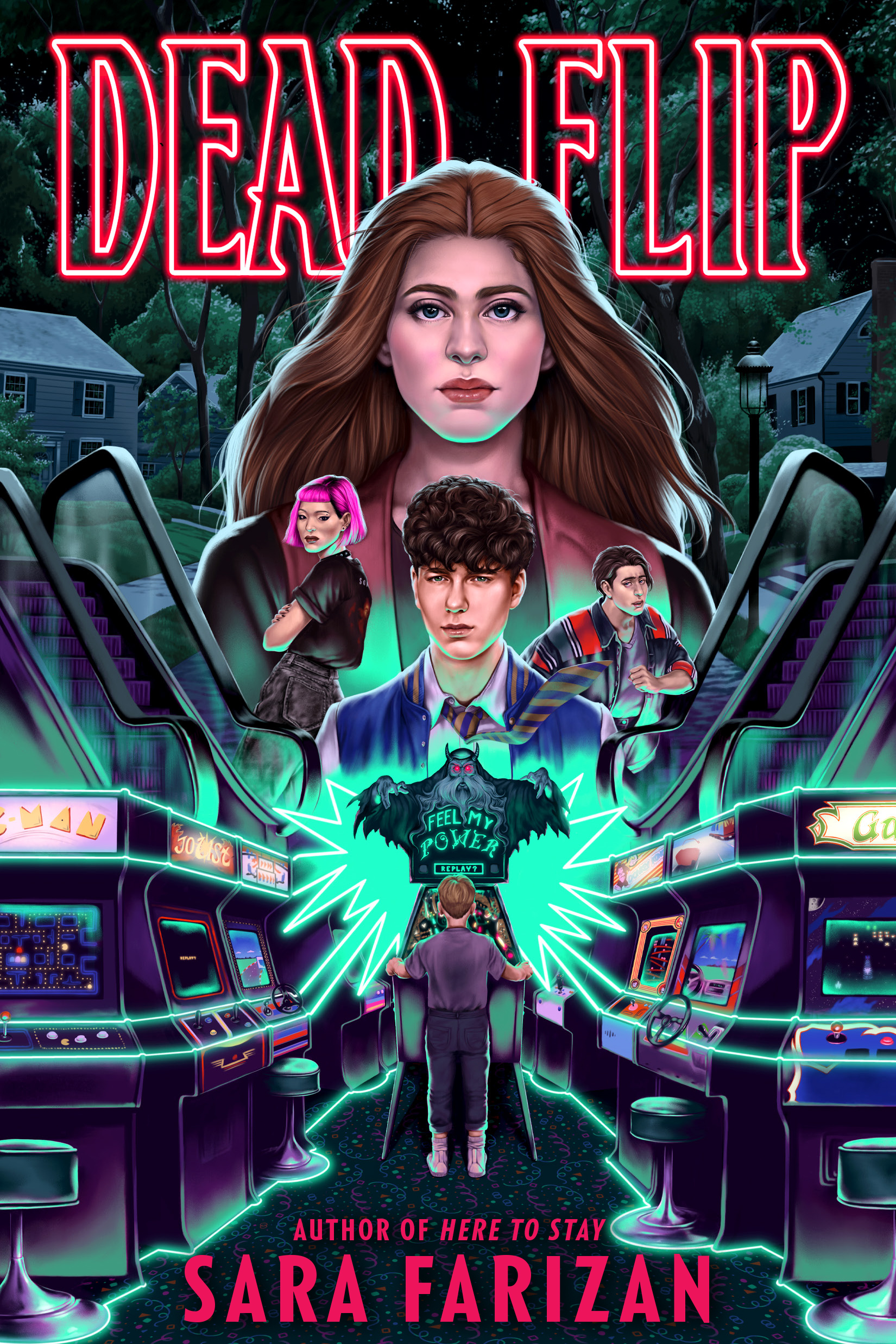 Sara Farizan: I think Mars sees the cracks in both girlhood and boyhood and the binary of summer camp in general. I think the girls' camp is so much more appealing and inviting to Mars, and they see it as more evolved in some ways, too. It's the difference between being welcomed into a group, and being a part of a group but not feeling welcome. Or the difference between being welcomed, but not understanding the rules.
Sara Farizan: I think Mars sees the cracks in both girlhood and boyhood and the binary of summer camp in general. I think the girls' camp is so much more appealing and inviting to Mars, and they see it as more evolved in some ways, too. It's the difference between being welcomed into a group, and being a part of a group but not feeling welcome. Or the difference between being welcomed, but not understanding the rules.
La Sala: Right! Cori feels trapped in this definition of girlhood. She never made the choice for herself. But the expectations were there, nonetheless.
Farizan: And for Cori, it's also that she's attractive and that she has this older sister who is a hyper-sexualized, hyper-feminine '80s trope. Cori feels this pressure to get with the program and adopt the behaviors that she's learned from her girlfriends and sister. But her sister is trapped in this role--and she knows it. Cori learns that the way to get out of certain traps is to use what other people see as the gifts she's been given. So she learns that if she's going to survive high school without anyone learning her faults or her big secret, she can't have people thinking of her as the friend of the "missing ghost boy."
Going back to our discussion about being welcomed into groups: Cori attends a sleepover at one point where she learns the behaviors and the rules of the girls. Or she wants to learn but it feels foreign to her. You see this with Mars, too. When people say things like, "Boys will be boys," Mars challenges them. The boys in Mars's camp are saying suggestive things about the girls' bodies and there's no authority figure to stop them. Mars calls the boys out and makes them confront their sexist actions.
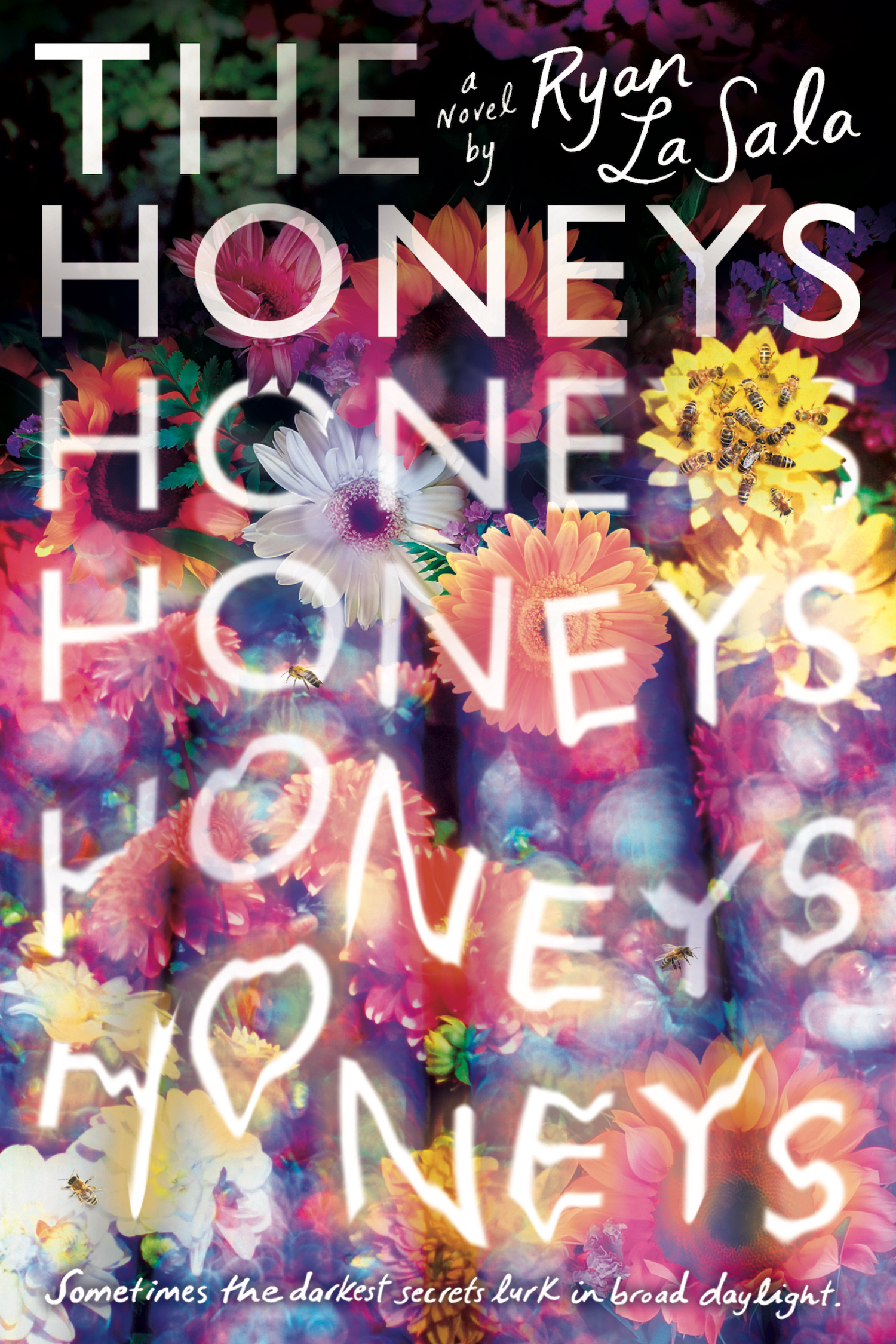 La Sala: This happens in the girls' camp, too: people tell Mars consistently that his sister wasn't like other girls. Mars bristles at this because Mars thinks, "Maybe she was!" But maybe there is no monolith to begin with and people haven't taken the time to look and investigate. Mars is begging everyone to take a closer look. Mars especially wants people to look a little harder at the Honeys and what they're hiding--the Honeys are aware of this monolith, and they use it to their advantage. It helps them put a division between them and the world.
La Sala: This happens in the girls' camp, too: people tell Mars consistently that his sister wasn't like other girls. Mars bristles at this because Mars thinks, "Maybe she was!" But maybe there is no monolith to begin with and people haven't taken the time to look and investigate. Mars is begging everyone to take a closer look. Mars especially wants people to look a little harder at the Honeys and what they're hiding--the Honeys are aware of this monolith, and they use it to their advantage. It helps them put a division between them and the world.
Similarly, Caroline gets told by a guy who's trying to flatter her that she's not like the other girls. Caroline's gobsmacked by this, because every choice she's made is to try to be like other girls.
Farizan: And she sees that she can be like "other girls" but still be denied so much. There's so much vitriol around young people appropriately fitting into the mold of girlhood and there are things imposed upon those that identify with girlhood that they didn't get to choose. Cori finally realizes that no matter what she does or however she behaves, ultimately, the game is rigged.
La Sala: And that the "other girl" is propped up by the patriarchy--she's just there to make it really hard for everybody else to exist in her orbit.
Farizan: I think both of our books are saying, "There is no way for you to be, other than yourself."
La Sala: Right.
Book Candy
Book Candy
Author Hafsa Zayyan picked her top 10 books about dual identity for the Guardian.
"Unlikely heroes: picture books about pens, pencils, and crayons," recommended by the New York Public Library.
Mental Floss found "11 books that are (probably) lost forever."
Colossal featured "interlocking lines of text spring from Stephen Doyle's poetic book sculptures."
Rediscover
Rediscover: Norah Vincent
 Norah Vincent, whose 2006 book, Self-Made Man, made her "a media darling" but "cost her psychologically," died July 6 at age 53, the New York Times reported. Her death, which was not announced at the time, was confirmed recently by a friend who said it was a voluntary assisted death. In the winter of 2003, as a 35-year-old journalist, Vincent "ventured out to live as a man for 18 months, calling herself Ned." In her year and a half living as Ned, Vincent put him in a number of stereotypical, hypermasculine situations until, at an Iron John retreat, "Ned began to lose it. Being Ned had worn Ms. Vincent down; she felt alienated and disassociated, and after the retreat she checked herself into a hospital for depression," the Times noted.
Norah Vincent, whose 2006 book, Self-Made Man, made her "a media darling" but "cost her psychologically," died July 6 at age 53, the New York Times reported. Her death, which was not announced at the time, was confirmed recently by a friend who said it was a voluntary assisted death. In the winter of 2003, as a 35-year-old journalist, Vincent "ventured out to live as a man for 18 months, calling herself Ned." In her year and a half living as Ned, Vincent put him in a number of stereotypical, hypermasculine situations until, at an Iron John retreat, "Ned began to lose it. Being Ned had worn Ms. Vincent down; she felt alienated and disassociated, and after the retreat she checked herself into a hospital for depression," the Times noted.
The resulting book, Self-Made Man, was a nearly instant bestseller and made Vincent "a media darling; she appeared on 20/20 and on The Colbert Report, where she and Stephen Colbert teased each other about football and penis size," the Times wrote. "But the book was no joke. It was a nuanced and thoughtful work.... Vincent was a lesbian. She was not transgender, or gender fluid. She was, however, interested in gender and identity. As a freelance contributor to the Los Angeles Times, the Village Voice and the Advocate, she had written essays on those topics that inflamed some readers."
The idea for Vincent's next book, Voluntary Madness: My Year Lost and Found in the Loony Bin (2008), came to her after the Iron John unraveling, when she had committed herself to the hospital as a suicide risk. In another attempt at immersive journalism, she subsequently toured mental institutions and "found herself increasingly mired in depression and juggling a cocktail of medications," the Times wrote.
In 2013, Vincent began a new novel, Adeline, in which she imagined the inner life of Virginia Woolf from the moment Woolf conceived her novel To the Lighthouse to the morning in 1941 when she walked into the river near her home with pockets full of stones and drowned. As Vincent was working on the book, she tried to kill herself. Adeline, she wrote later, was "not just a work of fiction, or an act of literary ventriloquism. It was my suicide note." Self-Made Man is available in paperback from Penguin Books ($16).


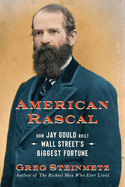
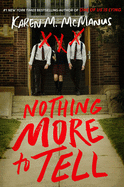
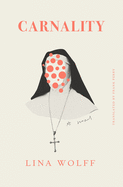
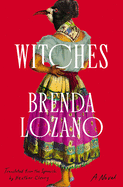
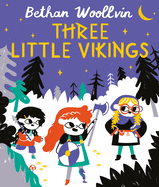
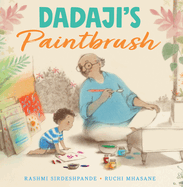
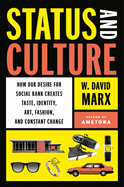
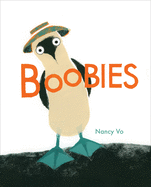

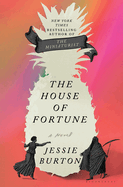
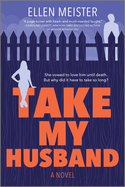
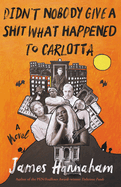
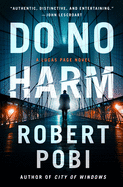
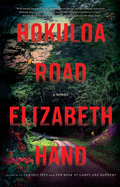
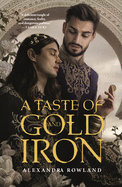
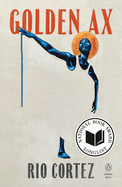
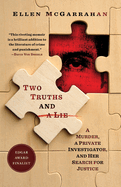
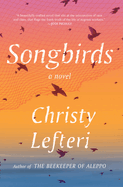
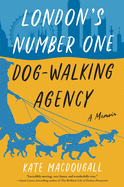
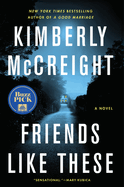
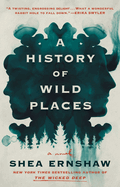
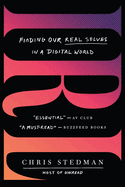
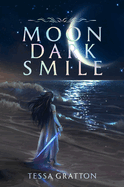
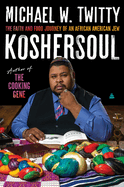
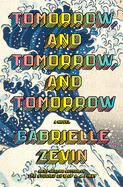
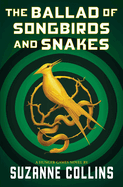
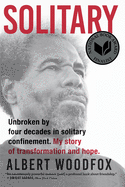
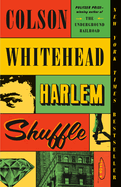
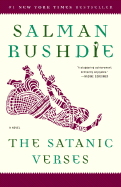
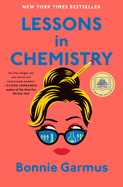
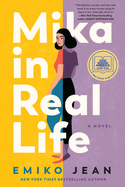
_Carter_Hasegawa.jpg)
